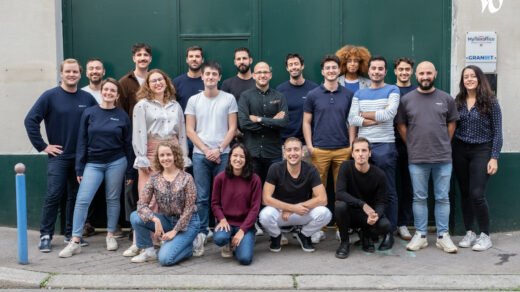This is today’s edition of The Download, our weekday newsletter that provides a daily dose of what’s going on in the world of technology.
Your AC habits aren’t unique. Here’s why that’s a problem.
—Casey Crownhart
When I get home in the evening on a sweltering summer day, the first thing I do is crank up my window air-conditioning units. Then I might also turn on the TV and get started on dinner.
People everywhere do the same thing. These early evening hours in the summer are usually the time with the highest electricity demand. And a huge chunk of that power is going into cooling systems that keep us safe and comfortable.
This is such a significant challenge for utilities and grid operators that some companies are trying to bring new cooling technologies to the market that can store up energy during other times to use during peak hours. So here’s what we need to consider as we plan to keep the lights (and AC) on while cleaning up our energy system.
This story is from The Spark, our weekly energy and climate newsletter. Sign up to receive it in your inbox every Wednesday.
If you’re interested in how future air conditioners could work, why not check out:
+ The race to build more efficient air conditioners has become increasingly urgent. Moisture-sucking desiccants that pull water out of the air could help. Read the full story.
+ The legacy of Europe’s heat waves will be more air conditioning. Here’s why that’s a problem.
+ Why air-conditioning is the double-edged sword of climate technologies.
The must-reads
I’ve combed the internet to find you today’s most fun/important/scary/fascinating stories about technology.
1 The Starliner astronauts may not return to Earth until 2025
They were supposed to stay eight days, but could end up staying eight months. (WP $)
+ The pair were supposed to return on Boeing’s spacecraft. (NYT $)
+ It seems there’s been a lot of disagreements behind the scenes inside NASA. (Ars Technica)
+ Meanwhile, the ISS is due to return to Earth around 2030. (New Scientist $)
2 Humane’s Ai pin customers are returning more than they’re buying
The company’s fortunes are going from bad to worse. (The Verge)
3 Google and Meta secretly collaborated on ads targeted at teenagers
The rivals put aside their differences for the project, which bent even their own rules. (FT $)
+ A loophole allowed them to intentionally target under-18s. (The Verge)
4 Crypto executives are courting Kamala Harris
They see her as a blank slate ripe for influence. (The Information $)
5 Gunshot detection tech has little effect on reducing handgun violence
Or prosecutions, for that matter. (Undark Magazine)
6 China’s ride-hailing drivers are threatened by robotaxis
The country has forged ahead with trials, much to the drivers’ despair. (Reuters)
+ How China is regulating robotaxis. (MIT Technology Review)
7 Welcome to Ozempictown, USA
Weight-loss drugs have taken over a Kentucky city—and others will follow. (Bloomberg $)
+ Weight-loss injections have taken over the internet. But what does this mean for people IRL? (MIT Technology Review)
8 Engineered dust could be the key to living on Mars
Pumping new dust into its atmosphere could help to restore water. (Economist $)
+ Saturn is looking surprisingly watery these days. (Knowable Magazine $)
+ Inside NASA’s bid to make spacecraft as small as possible. (MIT Technology Review)
9 Lenovo’s ThinkPad laptop isn’t exactly glamorous
But its steadfast reliability has made it the business world’s favorite device. (WSJ $)
10 This AI assistant understands mixes of languages
‘Spanglish’ is its first, but other combinations are in the pipeline. (toptechtrends.com/2024/08/08/bilingual-dictation-assistant-silvia-understands-spanglish-and-other-language-mixtures/”>TechCrunch)
+ How to access Chinese LLM chatbots across the world. (MIT Technology Review)
Quote of the day
“Neutrality has left the building.”
—Alexander B. Howard, an open government advocate, argues that Elon Musk’s recent political statements have erased any trust in X’s impartiality, he tells the Washington Post.
The big story
Pneumatic tubes were once touted as something that would revolutionize the world. In science fiction, they were envisioned as a fundamental part of the future—even in dystopias like George Orwell’s 1984, where they help to deliver orders for the main character, Winston Smith, in his job rewriting history to fit the ruling party’s changing narrative.
In real life, the tubes were expected to transform several industries in the late 19th century through the mid-20th. The technology involves moving a cylindrical carrier or capsule through a series of tubes with the aid of a blower that pushes or pulls it into motion, and for a while, the United States took up the systems with gusto.
But by the mid to late 20th century, use of the technology had largely fallen by the wayside, and pneumatic tube technology became virtually obsolete. Except in hospitals. Read the full story.
—Vanessa Armstrong
We can still have nice things
A place for comfort, fun and distraction to brighten up your day. (Got any ideas? Drop me a line or tweet ’em at me.)
+ Why rabid fans of the Rock Band video game franchise refuse to let it die.
+ For many of us, math is not fun. But there are ways to get better at it.
+ It’s impossible to play the drumbeat of Blur’s Song 2 alone.
+ You deserve to feel joyful!

